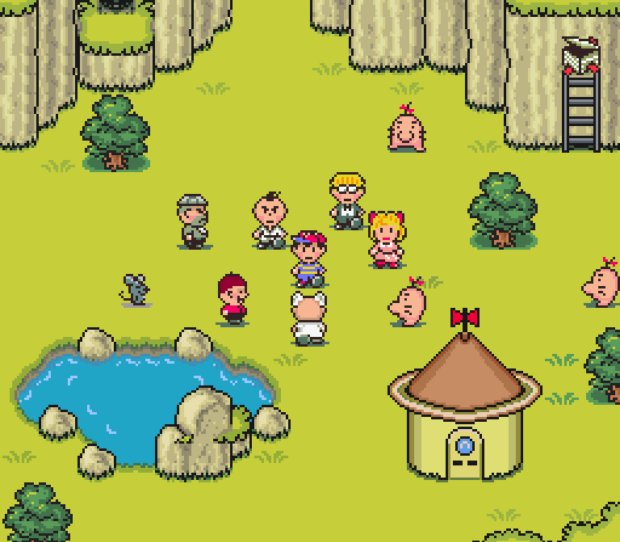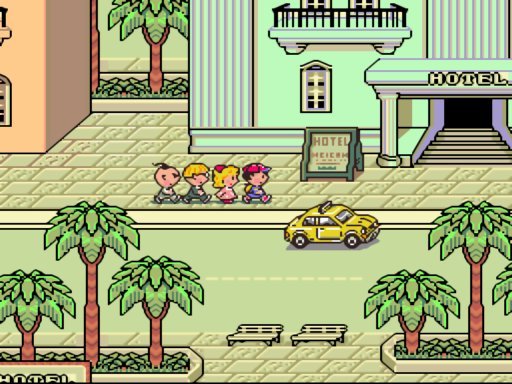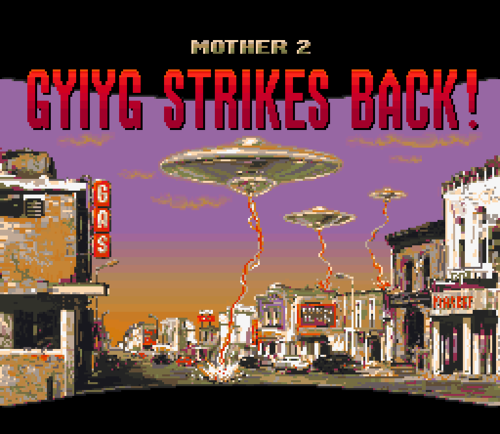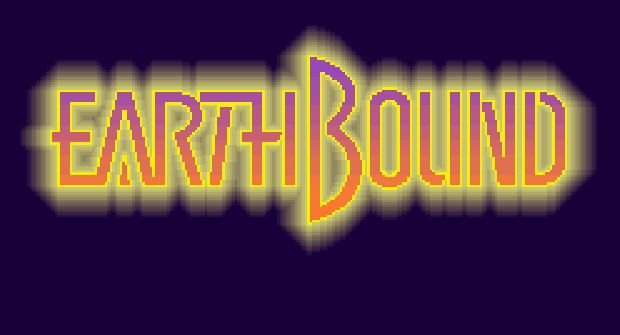Ask GR Anything: What's the deal with Earthbound?
This week, we delve into the reasons why this uniquely old-school RPG series is so beloved

Ask GR Anything is a weekly Q%26A column that answers questions submitted by readers (as well as questions we're particularly curious about ourselves). Got a burning question about games or the industry? Ask us in the comments below and you may just get it answered!
There's one question that, sooner or later, every new gamer screams into the night in a fit of confused frustration: "What the hell is Earthbound and why is everybody freaking out about a seventeen-year-old game?" So this week, we thought we'd leverage this column's question-answering capabilities to shed light on one of gaming's most persistent mysteries.

To start simply, Earthbound is the only entry in the "Mother" series to make it to the West. There are three games in the series, and Earthbound is a localization of Mother 2. Despite the game's bizarrely large and devout fan-following, Nintendo has never announced further plans for the series. In a weird way, this complete lack of attention to the series may actually be feeding the fervor surrounding it.
"I think part of the reason that people really love Mother 3 is that it never came to the U.S.," said Jason Schreier, staff reporter at Kotaku.com and former JRPG columnist at Joystiq.com. "You essentially have to pirate it in order to play it in English, which means that if you do play it, you're immediately part of this semi-exclusive cabal that went through all the trouble of finding an emulator, downloading a ROM, and installing the unofficial translation patch just to play this niche little RPG. Instant street cred."
However, Schreier was quick to add that he also thinks it's successful because it's a great RPG. The story is one of the main reasons people still flock to the series today. Rather than focusing on knights, wizards, and medieval/fantasy landscapes like most RPGs did at the time, the Mother series is set in the present age – 1988, to be precise.
In the original Mother, a young married couple from a small town in the United States mysteriously vanish after their town is covered by a dark shadow. Two years later, the husband returns, and he begins working on strange research. His wife never returns from the disappearance. The story then flashes forward in time and focuses on a young boy named Ninten (Ness in the North American version of Earthbound, and Super Smash Bros.). When his home is attacked, Ninten/Ness sets out to investigate paranormal events that are happening around the globe.

In the second game, Ness investigates a meteor that lands near his house, only to find a droid from the future who sets him on a quest to defeat an evil alien called Giygas, who has become so powerful in the future that he dominates the universe.
Weekly digests, tales from the communities you love, and more
We don't want to ruin the stories for you, but that's the basic idea. Already, though, we can see why this series is so unique. What RPG do you know of that is set in the present day, and is focused more on beating things to death with a baseball bat than training the next level of a lightning spell? The game's tone lends itself to this bizarre change of pace too. Whereas most of the games of its era were hyper-serious and melodramatic, Earthbound was a little goofy.
"EarthBound was one of the first RPGs to really act silly, utilize a modern setting, and have a more set piece-laden story, like you see with blockbuster titles nowadays," said Clyde Mandelin, proprietor of EarthboundCentral.com, a fan-site for the Mother series. "The game's presentation was also pretty ahead of its time - it has 120 or more different music tracks, which was unheard of at the time. And they're all from wildly different genres, it was just crazy."
The focus on music played into the gameplay itself too. "The combat has this unique rhythmic element where you can get extra combo attacks by tapping your buttons to the beat of the music," said Schreier.

The Mother series isn't completely off-the-wall, though. Its structure is based heavily on the traditional Japanese style of role-playing, with an overworld separating towns, dungeons, and other areas of interest. Combat is turn-based, with a player-selected party of combatants.
"Neither [Earthbound nor Mother 3] feels particularly modern," said Schreier. "In fact, Earthbound goes out of its way to feel like the resoundingly antiquated Dragon Quest. They both stick to some annoying RPG conventions (you can only save at save points, for example) and they're both strictly 2D."
So why do people love the game? "The game just has so much heart, the kind that's hard to find in most games," said Mandelin. "And the fact that only one game has been released gives it a sort of underdog feel, and everyone loves an underdog! If I had to give a third reason, it might be that the [game’s] unique look at Western culture from Japanese eyes – in game form, no less – has a charm all its own."

Unfortunately, even if your interest is piqued, it's kind of tough to actually play Earthbound these days. The SNES version of the game has become a rare item, and regularly sells for over $200 on eBay. The only other option is to download the games "illegally" and get the English-language mods. Unfortunately, we're not allowed to tell you how. Sorry.
Submit your own questions in the comments (or Tweet them to @sciencegroen) and we may tackle them for a future Ask GR Anything.


